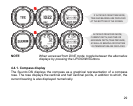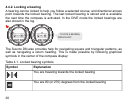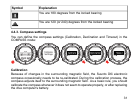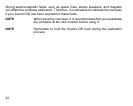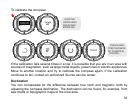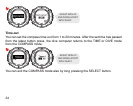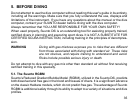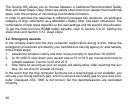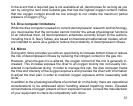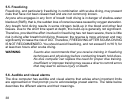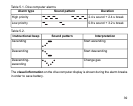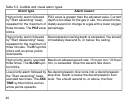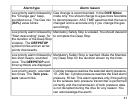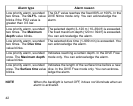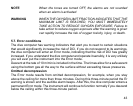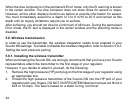In the event that a required gas is not available at all, decompress for as long as you
can by using the next most suitable gas that has the highest oxygen content. Notice
that the oxygen content should be low enough to not violate the maximum partial
pressure of oxygen (PO
2
).
5.3. Dive computer limitations
While the dive computer is basedon current decompression research and technology,
you must realize that the computer cannot monitor the actual physiological functions
of an individual diver. All decompression schedules currently known to the authors,
including the U.S. Navy Tables, are based on theoretical mathematical models, which
are intended to serve as a guide to reduce the probability of decompression illness.
5.4. Nitrox
Diving with nitrox provides you with an opportunity to increase bottom times or reduce
the risk of decompression illness by reducing the nitrogen content in the gas mix.
However, when the gas mix is altered, the oxygen content of the mix is generally in-
creased. This increase exposes the diver to an oxygen toxicity risk not usually con-
sidered in recreational diving. In order to manage this risk, the dive computer tracks
the time and intensity of the oxygen exposure and provides the diver with information
to adjust the dive plan in order to maintain oxygen exposure within reasonably safe
limits.
In addition to the physiological effects of enriched air on the body, there are operational
considerations to be addressed when handling altered breathing mixes. Elevated
concentrations of oxygen present afire or explosion hazard. Consult the manufacturer
of your equipment to check its compatibility with nitrox.
37



